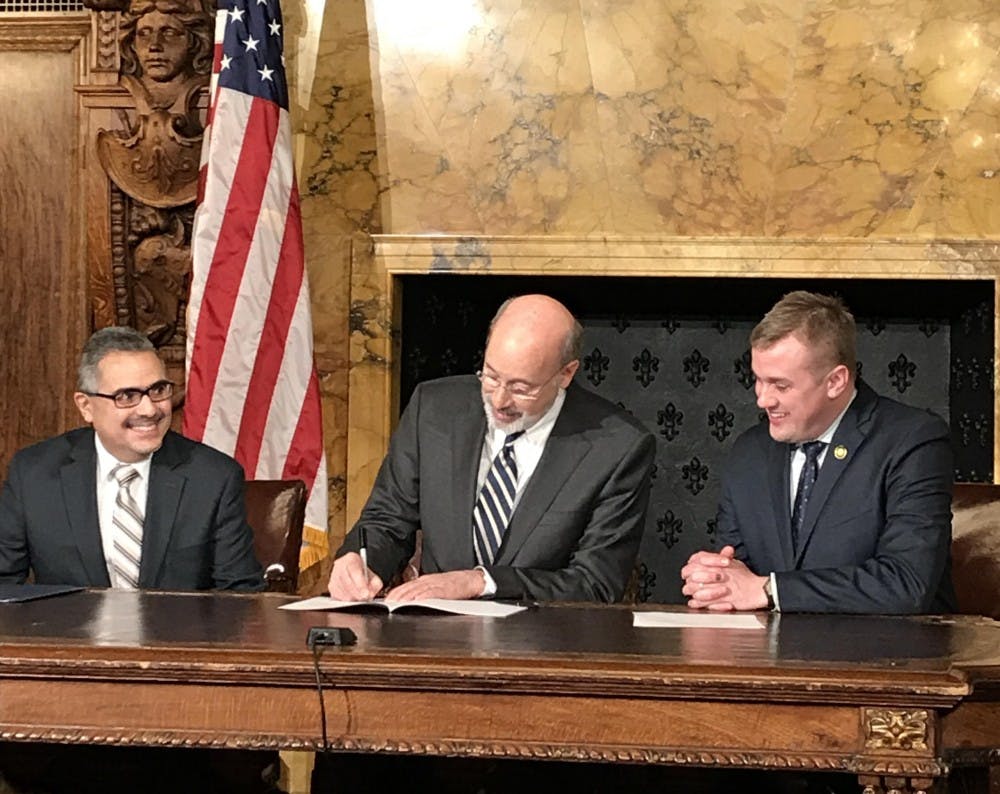One of Pennsylvania’s most important elections is taking place Nov. 6 — the gubernatorial election. Despite the fact that midterm elections are typically perceived as less important than the heavily televised presidential ones, the mid-term elections hold the most impact on the state’s. Because of the gridlock in Washington, D.C., more and more of law making is being accomplished at the state level. This means that whoever becomes governor in November will affect both Shippensburg University and the citizens of Pennsylvania immensely. Even with this knowledge, the voting in midterm elections is declining.
Only 41.8 percent of potential voters voted in the 2014 gubernatorial election, which barely outperformed the results of the 1998 election according to PublicSource.org. Currently, there are four candidates running for the governor’s seat — they include incumbent Democrat Tom Wolf, Republican Laura Ellsworth, Republican Scott Wagner and Republican Paul Mango. With the election rapidly approaching, it is imperative to understand where each of the candidates stand on state issues, especially those that will have a direct effect on the lives of the citizens of Pennsylvania. Some of the more significant issues today include higher education, job creation/poverty and bipartisanship.
Here at The Slate, we implore you to educate yourself as much as possible about these candidates and the issues, as they impact both your life at SU and beyond. Before Wolf was governor, he held the position of Secretary of the Pennsylvania Department of Revenue, and previously was the CEO of The Wolf Organization. As governor, Wolf has increased funding to the Pennsylvania State System of Higher Education (PASSHE) and has been open about how important education is to Pennsylvania.
When it comes to poverty and job creation, Wolf has been trying to intensify support for increasing the minimum wage to $10 per hour but has been unsuccessful so far. Wolf has been ineffective in his quest to work with Republicans and passing bills and budgets have not gone smoothly.
Pennsylvania Sen. Scott Wagner is the owner of a waste management business/trucking company. When it comes to his views on PASSHE, Wagner has said that unless PASSHE obtains an extensive overhaul it will not be around in four years. Wagner also believes that Pennsylvania is struggling in job creation because the state is not as business — friendly or competitive as other states. To bring jobs into the state, Pennsylvania needs to cut back on regulations and taxes so that outside businesses are incentivized to relocate. Wagner touts his experience in the state Senate and his work with fellow Democrats on bipartisan bills as a strong point in his campaign for governor.
Laura Ellsworth is an attorney from Pittsburgh. Ellsworth’s stance on higher education is to reward institutions that reduce tuition without affecting student’s education.
She advocates that being more transparent is necessary when it comes to how much money is awarded to pensions. When it comes to the issue of job creation, Ellsworth has said it must be dealt with in the private sector. She has said this can be achieved by lowering the state income tax, which is one of the highest in the nation. Lowering the state income tax would allow Pennsylvania to be more competitive in comparison to other states. During debates, Ellsworth has appeared the more professional of the two other Republican candidates. She continues to stay focused on the issues while her counterparts resort to name-calling.
Paul Mango is a former Army officer and was employed at a consulting firm for 29 years. During a gubernatorial debate in March, Mango publicly said he believes that Wagner goes too far when it comes to PASSHE, and said programs only need fixing. Instead, Mango believes higher education can be used to promote vocational training. Mango has similar views on job creation as Wagner, and has spoken about the need to cut taxes. However, bipartisanship is not Mango’s strong point, as he attacked fellow candidate Wagner for being a liberal and for working with Democrats. It is unlikely that these outlandish remarks would be beneficial for a compromise on the state budget.



The Slate welcomes thoughtful discussion on all of our stories, but please keep comments civil and on-topic. Read our full guidelines here.